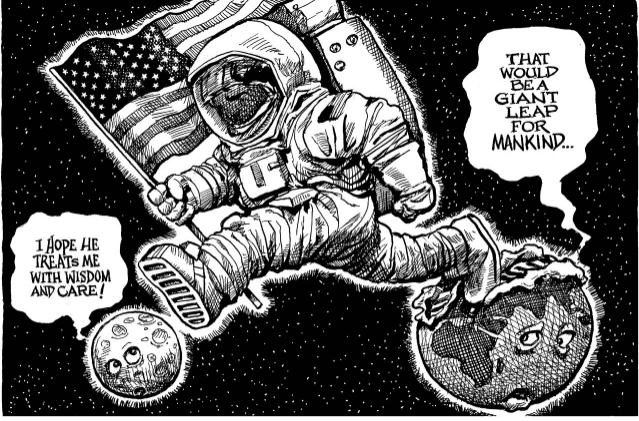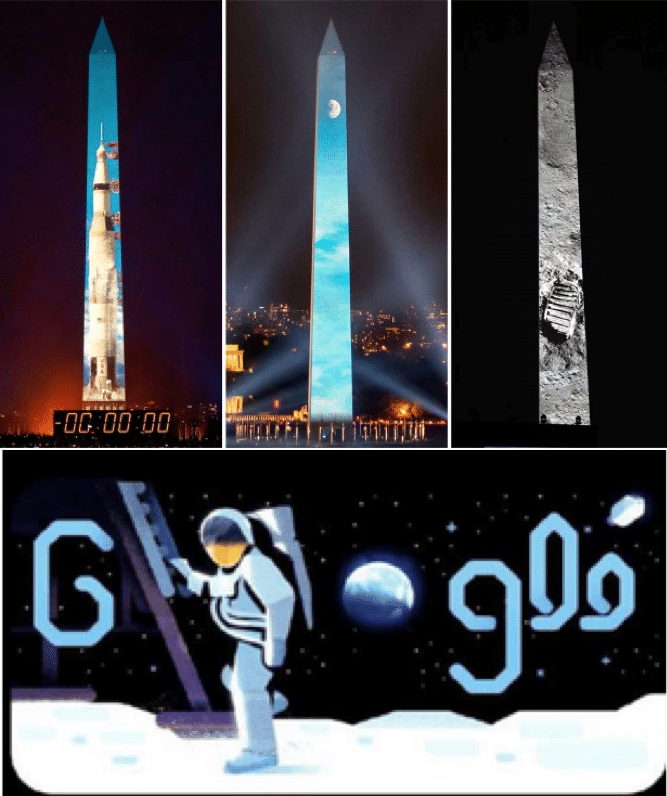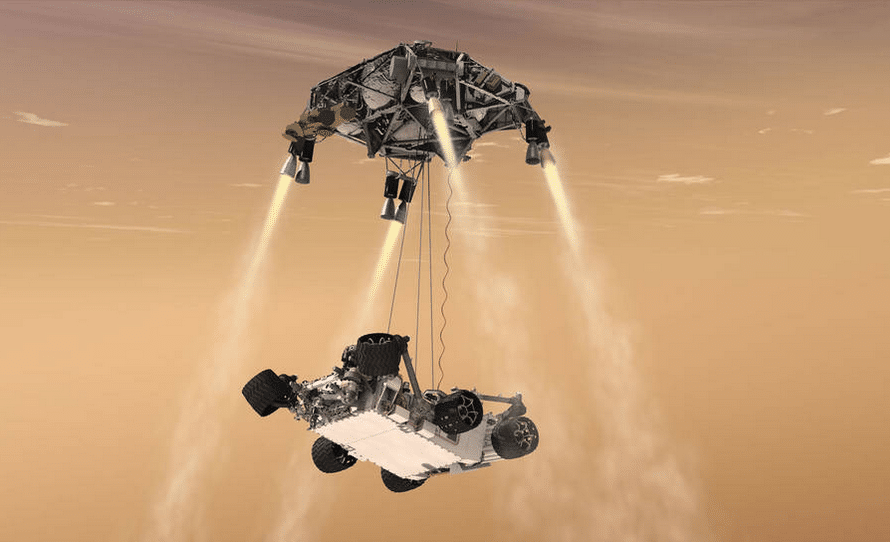Fifty years ago, human beings stepped on the moon for the first time. Some 650 million people around the world watched the historic landing on July 20, 1969, and heard astronaut Neil Armstrong say ‘… one small step for a man, one giant leap for mankind.’
Fittingly, there’s a Google Doodle celebrating the anniversary this weekend. Even cooler: An image of the Saturn V rocket that propelled the astronauts to the moon is being projected onto the Washington Monument at night, culminating in a video projection on Friday and Saturday.
(Vox, July 19, 2019)
But all of that is like harboring nostalgia for the Wright brothers’ first flight. The moon was just a stepping stone. Therefore, going back there seems like child’s play.
Indeed, the next giant leap mankind is planning to take will make that first one look like a baby’s first step.
The Mars 2020 rover mission is part of NASA’s Mars Exploration Program, a long-term effort of robotic exploration of the Red Planet. The Mars 2020 mission addresses high-priority science goals for Mars exploration, including key questions about the potential for life on Mars. The mission takes the next step by not only seeking signs of habitable conditions on Mars in the ancient past, but also searching for signs of past microbial life itself.
(NASA.gov)
I fully appreciate that mankind will never cease from exploring for signs of life in the universe. But, far from any other being, we already have convincing clues that there are just galaxies of nothingness out there — as I proffered in “Why All the Hoopla about Pluto When Mars Proved Such a Cosmic Dud,” July 18, 2015.
Therefore, count me among the skeptics who are convinced that
… the end of all our exploring
Will be to arrive where we started
And know the place for the first time.
— T.S. Eliot, Four Quartets
Put another way, I’d be more impressed if mankind cleaned up the mess we’ve made of our own planet before exploring for other planets to mess up too.
Besides, as my cousin Gilbert Morris might wax poetic, there are so many secrets hidden in the familiar here on Earth, we could spend a thousand years exploring and still not discover all its wonders.
In the meantime, if there are other creatures in the universe, they are probably better suited to discover us. And God help us if they do.
Related commentaries:
Mars…


